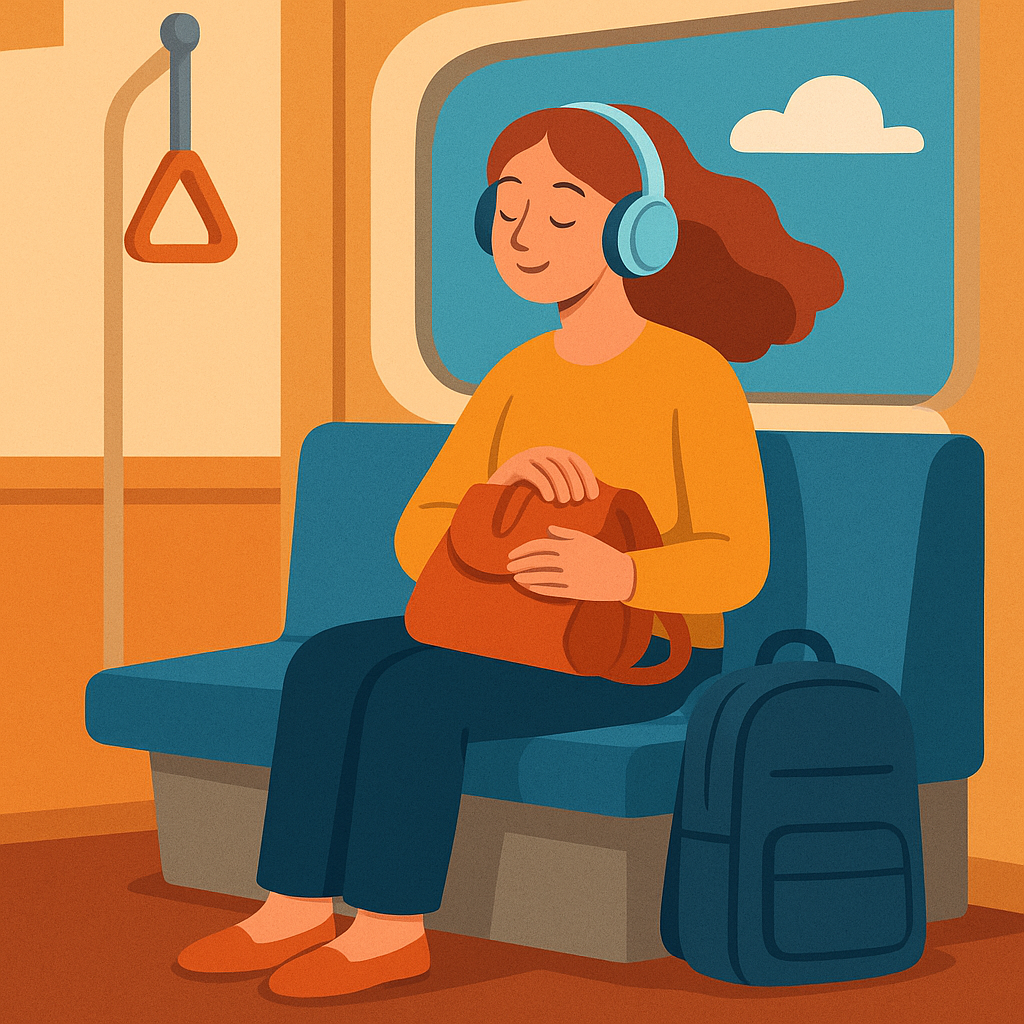Whether you’re driving, riding public transit, or walking to work, commuting can be one of the most stressful parts of your day. But with a few tricks to make your commute feel more relaxing, your commute can become a surprisingly calm and even enjoyable experience. In 2025, the focus on mental wellness, flexible routines, and smarter tech tools is reshaping how people approach everyday travel. If you’re looking for practical, up-to-date strategies to make your commute feel more relaxing, this guide offers actionable tips that work.

Why Commute Stress Matters
According to a 2023 report by the American Psychological Association, prolonged exposure to daily commuting stress is linked to elevated cortisol levels, increased risk of burnout, and reduced productivity. With hybrid and remote work models still evolving, many people are returning to regular commutes and searching for ways to ease the transition.
Keyphrase: Tricks to make your commute feel more relaxing
1. Rethink Your Commute Time
Timing can make a huge difference. A 15-minute shift in your routine could mean avoiding peak congestion, crowded buses, or long train delays.
Practical tips:
- Try leaving 20–30 minutes earlier or later to see if traffic conditions improve.
- Use traffic prediction apps like Google Maps or Waze to adjust your timing based on real-time data.
- If your workplace allows it, discuss flexible hours that help you avoid rush hour altogether.
2. Build a Better Sound Environment
Noise pollution—whether from traffic, loud conversations, or screeching subway brakes—can increase tension levels. Controlling what you hear helps create a sense of calm.
Relaxing audio options:
- Noise-canceling headphones: Brands like Sony and Bose offer effective options.
- Calming playlists or ambient music: Use platforms like Spotify’s “Lo-Fi Beats” or “Nature Sounds.”
- Podcasts or audiobooks: Choose narratives that are engaging but not overly stimulating.
According to a 2024 survey by NPR, 65% of regular podcast listeners say it helps reduce commute stress and improves mood before work.
3. Prepare Mentally the Night Before
A chaotic morning often starts with poor planning the night before. Setting yourself up with a smoother launch helps maintain a more relaxed pace the next day.
Checklist for evening prep:
- Pack your bag and prep your lunch in advance.
- Lay out clothes or pre-select your outfit.
- Charge all devices you’ll need (e.g., phone, wireless headphones).
Small changes in evening habits can help reduce decision fatigue in the morning, allowing for a calmer start.
4. Optimize Your Commuter Gear
The right accessories can reduce physical discomfort and improve overall mood during your trip.
Helpful commuter items:
- Ergonomic backpacks to reduce shoulder strain.
- Travel mugs that maintain your preferred beverage temperature.
- Supportive seat cushions if you drive or sit for extended periods.
Investing in small conveniences pays off over time, especially if your commute is longer than 30 minutes.
5. Practice Passive Mindfulness
You don’t have to meditate with your eyes closed to benefit from mindfulness. Passive practices can help you stay grounded without disrupting your commute.
Mindfulness strategies:
- Focus on your breathing—inhale slowly, hold, and exhale over 5 seconds.
- Do a quick body scan to check for tension and release it.
- If you’re walking or biking, pay attention to your surroundings rather than scrolling through your phone.
Apps like Calm and Headspace now offer “commute meditations,” some under five minutes, designed specifically for travel time.
6. Create a Phone-Free Window
Constant notifications can amplify stress and fragment your attention. Creating dedicated “no-phone” time can improve focus and reduce anxiety.
What to do instead:
- Look out the window and observe your environment.
- Reflect on your goals for the day.
- Listen to your own thoughts without distraction.
According to the Journal of Environmental Psychology (2024), commuters who avoid screens for at least 10 minutes experience lower stress markers by the time they reach work.
7. Switch Modes Once a Week
If your routine allows, changing your mode of transportation—even once per week—can have mental benefits.
Alternatives to try:
- Bike or walk a portion of your route.
- Use a rideshare or carpool to avoid driving every day.
- If you’re normally on public transport, try working from a nearby café before heading to the office.
Altering your routine slightly can break the monotony and make commuting feel less burdensome.
8. Stay Hydrated and Nourished
It’s easy to overlook how dehydration or low blood sugar can negatively affect your mood and energy during a commute.
Tips for staying fueled:
- Keep a reusable water bottle with you.
- Eat a balanced breakfast or bring a healthy snack.
- Avoid excess caffeine on an empty stomach.
Simple dietary habits can support physical and emotional well-being during long commutes.
9. Use Your Commute for Low-Stress Productivity
Commuting doesn’t have to be lost time. It can be used to tackle light tasks that don’t require too much mental energy.
Suggestions:
- Organize your calendar.
- Review non-urgent emails.
- Brainstorm ideas for ongoing projects via a voice note app.
Just make sure this doesn’t turn your commute into another work session—keep it light and optional.
10. End with a Positive Ritual
Bookending your commute with something you enjoy can create a psychological reward, helping you associate commuting with something pleasant.
Examples:
- Have a favorite tea or snack when you arrive.
- Listen to the last 5 minutes of a podcast as a “wrap-up cue.”
- Take a short walk before entering your building.
These rituals act as mental transitions, signaling the start or end of a workday and reducing emotional friction.
Final Thoughts
The everyday commute doesn’t need to feel like a draining obligation. With the right strategies—whether it’s adjusting your departure time, listening to calming audio, or incorporating mindfulness—your daily travel can become a space for decompression rather than stress. Implementing just a few of these tricks to make your commute feel more relaxing can make a noticeable difference in your overall mood and energy.
References
- American Psychological Association (2023). “Stress in America Report.” https://www.apa.org/news/press/releases/stress
- NPR Podcast Survey (2024). “How Audio Content is Changing Commuting Patterns.” https://www.npr.org
- Journal of Environmental Psychology (2024). “Digital Disconnection and Its Effect on Commuter Stress.” Elsevier. https://www.journals.elsevier.com/journal-of-environmental-psychology









